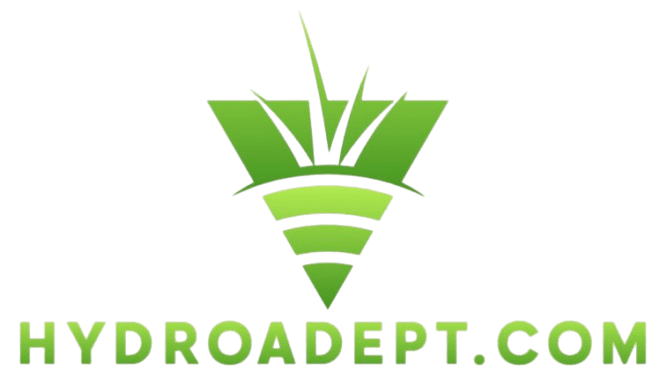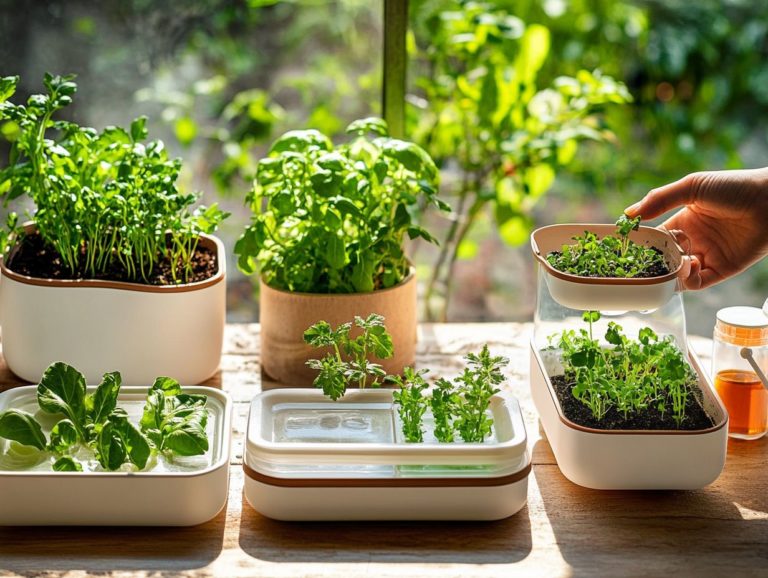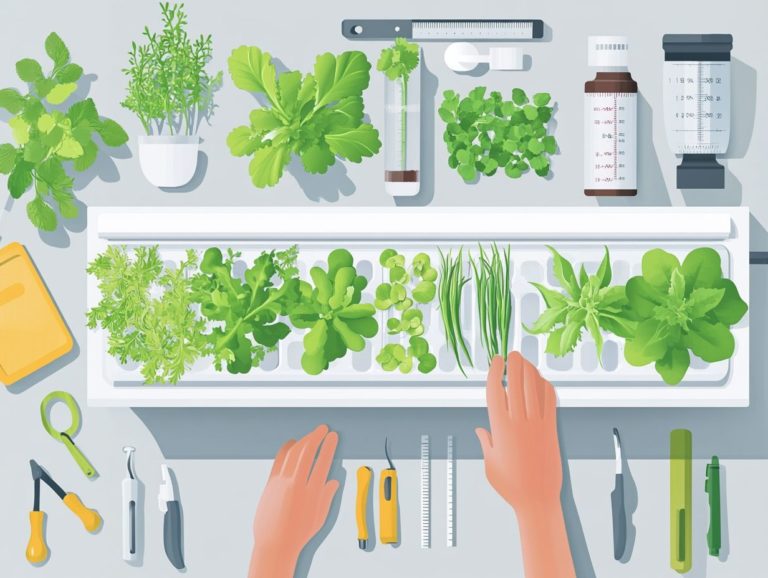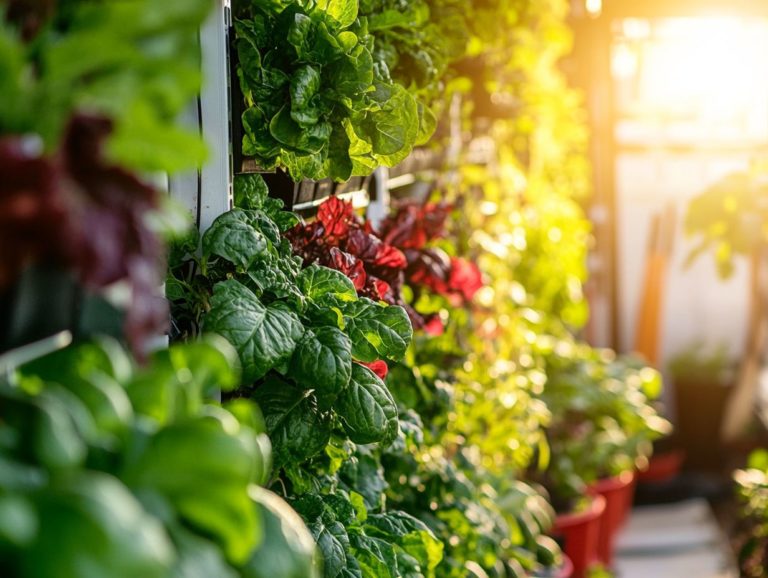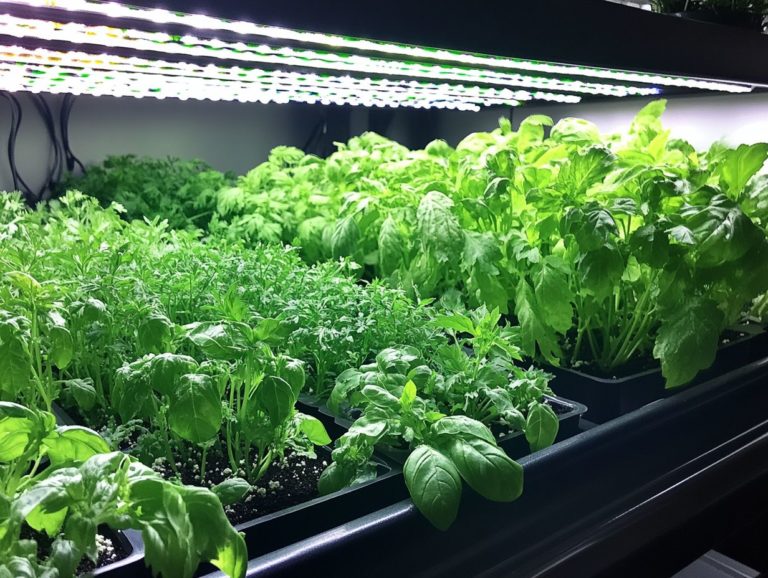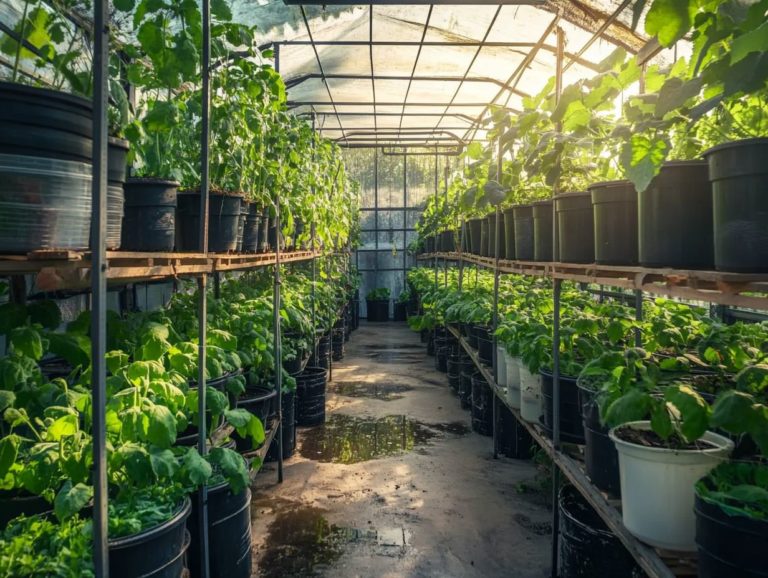How to Balance Nutrients in Hydroponic Systems?
In the realm of hydroponics, achieving the perfect balance of nutrients is essential for your plants to thrive. Understanding nutrient balance is critical for success in hydroponics, as it directly influences optimal plant growth and productivity.
This article delves into common nutrient imbalances that can impede your plants’ health, alongside effective strategies to rectify these issues. From fine-tuning nutrient solutions to incorporating supplements, you’ll discover practical tips to maintain an optimal nutrient balance in your hydroponic systems. Immerse yourself in this knowledge to ensure your plants reach their fullest potential!
Contents
- Key Takeaways:
- Understanding the Importance of Nutrient Balance
- Essential Nutrients for Hydroponic Plants
- Common Nutrient Imbalances in Hydroponic Systems
- Methods for Balancing Nutrients in Hydroponic Systems
- Using Supplements and Additives
- Tips for Maintaining Nutrient Balance
- Regular Monitoring and Adjustments
- Proper Cleaning and Maintenance of Systems
- Frequently Asked Questions
- What are the basic nutrients needed for a hydroponic system?
- How often should I check the nutrient levels in my hydroponic system?
- How do I know if my hydroponic system is lacking nutrients?
- Can I use regular fertilizer in a hydroponic system?
- How do I balance nutrients in a hydroponic system?
- What happens if I over-fertilize my hydroponic system?
Key Takeaways:
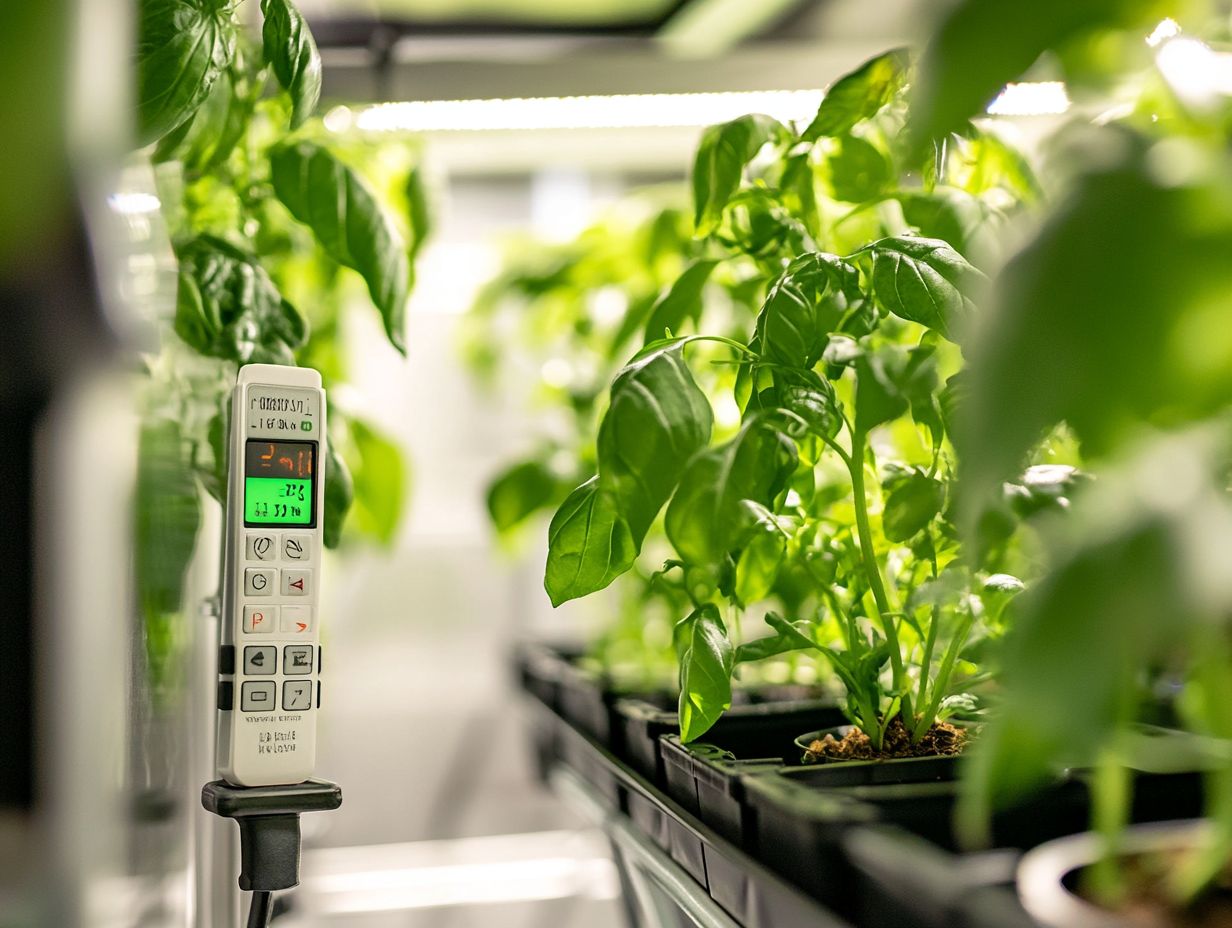
- Maintaining nutrient balance is crucial for hydroponic systems to ensure healthy plant growth and maximum yield.
- Macronutrients and micronutrients are essential for plant growth, and imbalances can lead to nutrient deficiencies or toxicities.
- Regular monitoring, proper cleaning, and adjustments in nutrient solutions are key methods for achieving and maintaining nutrient balance in hydroponic systems.
Understanding the Importance of Nutrient Balance
Effective nutrient management requires a nuanced understanding of macronutrients and micronutrients, both of which are essential for the well-being of hydroponic systems like those employed in Hydro-Gardens. Tailor nutrient solutions to meet your plants’ needs, highlighting the importance of carefully planned fertilizer routines and nutrient solution recipes.
When you achieve the right nutrient balance, your plants can flourish, paving the way for increased yields and healthier produce in your agricultural endeavors.
Essential Nutrients for Hydroponic Plants
Essential nutrients play a pivotal role in the health and vitality of hydroponic plants, supplying the fundamental elements required for robust growth and development. Let s break down these nutrients into two exciting groups: macronutrients like nitrogen, phosphorus, and potassium that are required in larger quantities, and micronutrients such as iron, manganese, zinc, and copper that are needed only in trace amounts.
Grasping the specific requirements for each nutrient, along with their functions in plant metabolism and growth, is vital for optimizing the hydroponic systems that are revolutionizing modern agriculture, particularly through Understanding Hydroponic Nutrient Solutions.
Macronutrients and Micronutrients
In hydroponics, macronutrients and micronutrients each play distinct yet harmonious roles in fostering optimal plant growth. You ll find that macronutrients, including nitrogen, phosphorus, potassium, calcium, and magnesium, are essential for various physiological functions such as energy transfer and structural development.
On the flip side, micronutrients like iron, manganese, zinc, and copper, though required in smaller quantities, are equally crucial for enzyme function and overall metabolic processes. Understanding the balance and interaction between these nutrient groups is vital for maximizing plant health in your hydroponic systems.
Grasping the specific roles these nutrients play within hydroponic environments is key to your success. For example, nitrogen encourages vigorous leaf and stem growth, while phosphorus is essential for root development and flowering. Potassium helps regulate water and nutrient uptake. Don’t wait; ensure your plants receive these essential nutrients today! Consider using specialized nutrient solutions that are rich in these elements and understand the role of micronutrients in hydroponics.
Don t underestimate the importance of micronutrients; they support critical functions such as chlorophyll production and photosynthesis. Fertilizers enriched with chelated forms of these trace elements can be a great option, providing a comprehensive nutritional profile that promotes thriving hydroponic systems.
Start experimenting with your nutrient solutions today and watch your hydroponic garden thrive!
Common Nutrient Imbalances in Hydroponic Systems
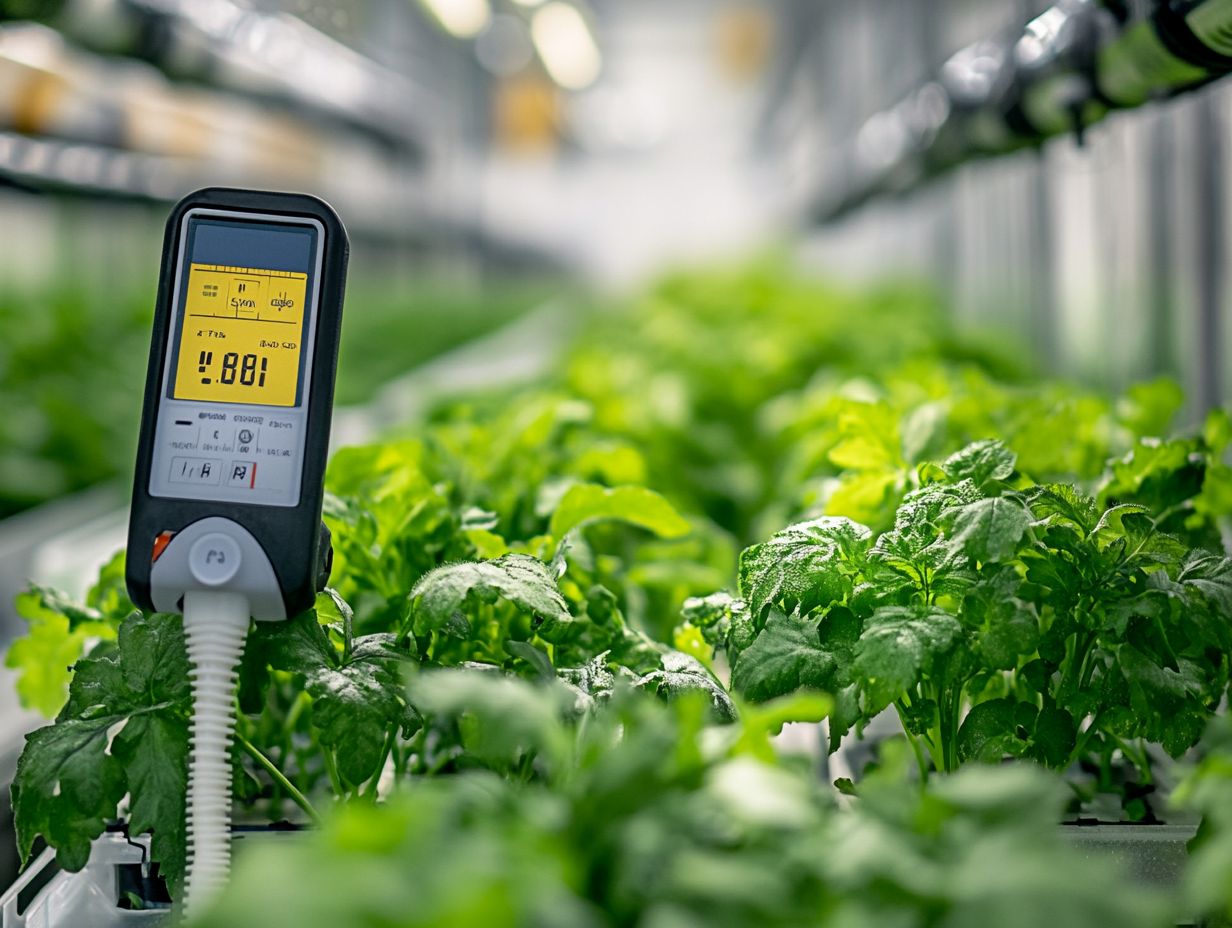
Nutrient imbalances in hydroponic systems can disrupt plant growth and reduce yields. These issues often arise from changes in nutrient concentration and environmental conditions.
It’s vital to spot deficiencies or excesses in essential nutrients like nitrogen and potassium, as well as micronutrients such as calcium and iron. This ensures your hydroponic plants stay healthy.
Imbalances can show various symptoms that affect your plants’ vitality and productivity.
Identifying and Correcting Imbalances
Spotting and correcting nutrient imbalances is essential for optimal plant health. By observing your plants for signs of nutrient issues, you can adjust nutrient levels accordingly.
Use effective fertilizer programs and diagnostic tools to detect imbalances early. This enables timely corrections for healthy plant growth and better yields.
Symptoms like yellowing leaves or stunted growth indicate specific nutrient issues. Soil and tissue testing can provide insights into what your plants need.
To correct imbalances, adjust nutrient solutions and use slow-release fertilizers for a steady supply of nutrients. Regular monitoring and techniques like crop rotation will enhance your strategies for better crop health and yields.
Methods for Balancing Nutrients in Hydroponic Systems
To achieve a balanced nutrient mix in hydroponic systems, make precise adjustments to your solutions. Tailor your fertilizer programs to ensure your plants receive the right combination of nutrients for optimal growth.
Consider environmental factors and your plants’ unique needs. This helps create a nutrient-rich solution that fosters healthy development.
Adjusting Nutrient Solutions
Adjusting nutrient solutions is crucial in hydroponics. Regularly assessing nutrient levels ensures that both essential nutrients and micronutrients are present in ideal concentrations.
For effective monitoring, use tools like pH meters and EC sensors. These instruments provide real-time data, allowing for accurate adjustments.
Document your adjustments and monitor how your plants respond. This helps you maintain a balanced nutrient composition for vigorous growth and maximized yields.
Using Supplements and Additives
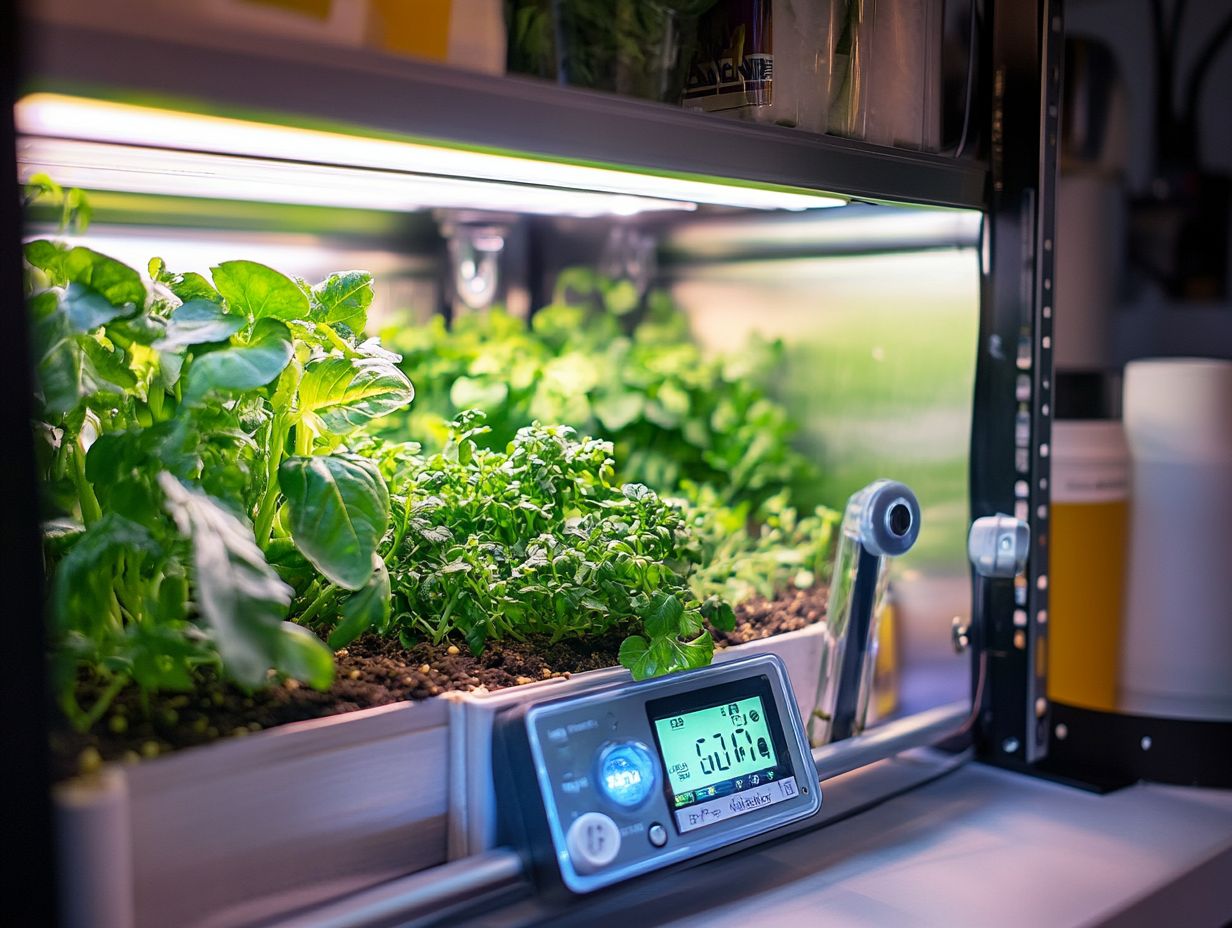
Incorporating supplements and additives into your hydroponics can greatly enhance your nutrient solutions, promoting optimal plant growth. These products deliver essential big nutrients and small nutrients that support various plant processes, allowing you to fine-tune nutrient levels to perfection.
For example, calcium and magnesium supplements, like Cal-Mag, are crucial for preventing deficiencies that could lead to issues such as blossom end rot in tomatoes or tip burn in lettuce. Organic options, such as bat guano or fish emulsion, introduce beneficial microbes that enhance nutrient uptake.
When integrating these products, adhere to the manufacturer’s guidelines for proper dosage. This ensures your plants receive the right balance. For optimal results, consider learning how to mix hydroponic nutrients like a pro. Using root stimulators like beneficial bacteria or fungi can improve root development, making nutrient absorption more efficient and fostering a robust hydroponic system overall.
Tips for Maintaining Nutrient Balance
Keep your nutrient balance on point for thriving plants! Regular monitoring and timely adjustments to your nutrient solutions are essential.
Establish a routine for testing nutrient levels and observing your plants’ health to ensure adequate supply of both big nutrients and small nutrients. Proper cleaning and maintenance of your systems are crucial in preventing nutrient buildup and ensuring the longevity of your hydroponic setup.
This commitment supports continuous plant growth and enhances productivity.
Regular Monitoring and Adjustments
Monitor your system regularly to ensure your plants get the right nutrients. Frequent testing of your nutrient solutions and observing your plants’ responses allow you to make necessary adjustments to your fertilizers.
To achieve this, consider using electronic nutrient meters, pH testers, and conductivity meters. These tools let you track nutrient concentrations and pH levels with precision, ensuring any deviations are swiftly addressed. Additionally, explore organic nutrient options for hydroponic systems to enhance your gardening experience.
Don t underestimate the power of visual assessments of plant health; signs of nutrient deficiency or excess often manifest as changes in leaf color or growth patterns. Implement a systematic approach, such as conducting weekly checks and keeping a log of your adjustments, to enhance the effectiveness of your nutrient management strategies.
Proper Cleaning and Maintenance of Systems
A clean hydroponic system is crucial for plant health. Regular cleaning and maintenance help you maintain nutrient balance and prevent harmful buildup.
Establish a consistent cleaning schedule ideally conducting deep cleans every two to four weeks. During these sessions, thoroughly scrub all components, such as reservoirs, tubes, and grow trays, with a mild disinfectant to eliminate any algae and pathogens.
Additionally, monitor pH levels and electrical conductivity weekly to catch any imbalances early. Keeping your system clean not only protects the integrity of your nutrient solutions but also significantly boosts the overall health of your plants, leading to faster growth rates and higher yields.
Frequently Asked Questions
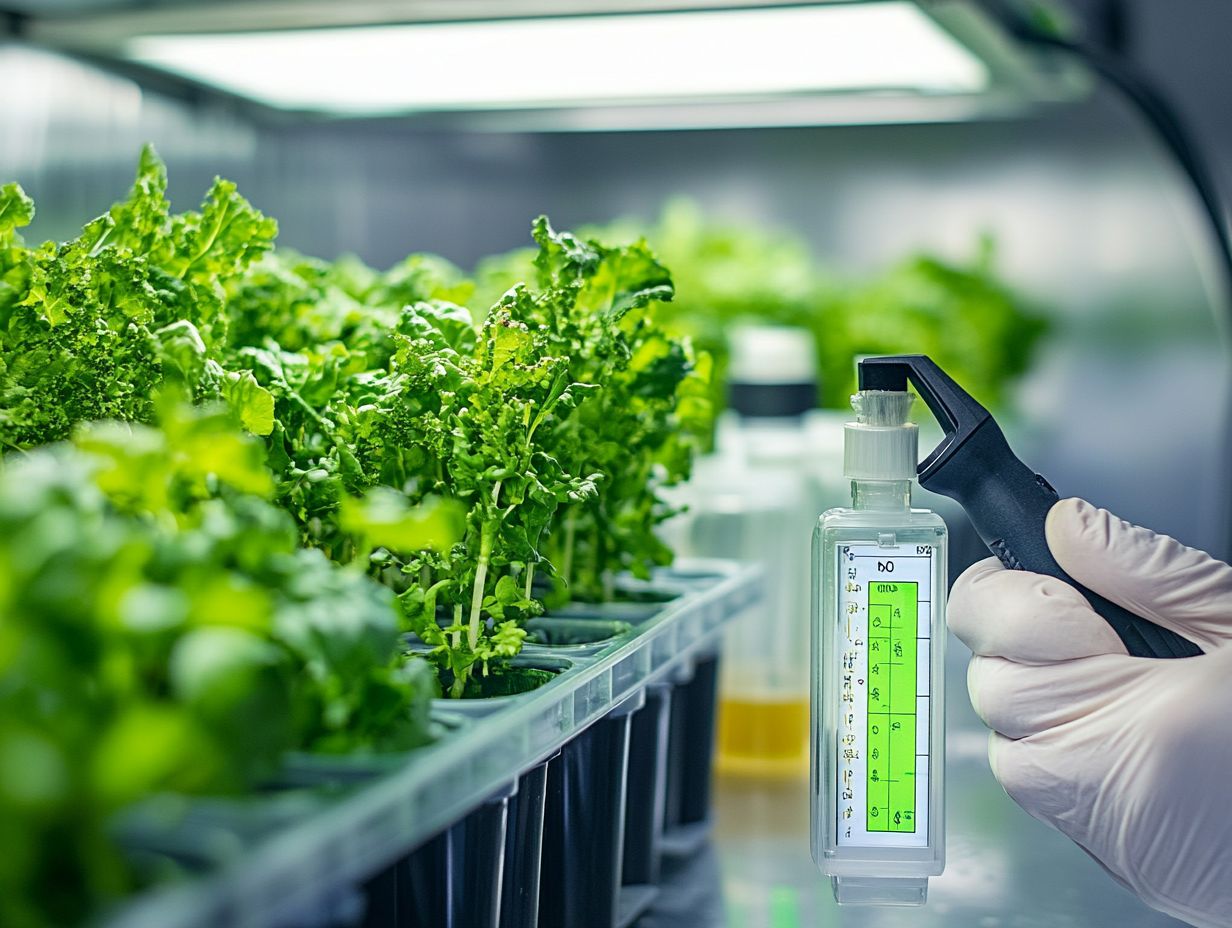
What are the basic nutrients needed for a hydroponic system?
Hydroponic systems need six essential nutrients: nitrogen, phosphorus, potassium, calcium, magnesium, and sulfur. These nutrients support plant growth and health.
How often should I check the nutrient levels in my hydroponic system?
Make it a habit to check your nutrient levels weekly for thriving plants! The frequency can vary based on your system and the plants you are growing.
How do I know if my hydroponic system is lacking nutrients?
Watch for signs like stunted growth, discoloration, or wilting. These indicate a nutrient deficiency, and a nutrient test can pinpoint the problem.
Can I use regular fertilizer in a hydroponic system?
No, regular fertilizers aren t safe for hydroponic systems. They often contain soil additives that can clog your system and harm your plants.
How do I balance nutrients in a hydroponic system?
Use a complete hydroponic nutrient solution that provides all essential nutrients in the right amounts. Regular testing helps you adjust and achieve the perfect balance.
What happens if I over-fertilize my hydroponic system?
Over-fertilizing can harm your plants by causing a buildup of salts and nutrients. This leads to root burn, so stick to recommended dosages and monitor your levels closely.
